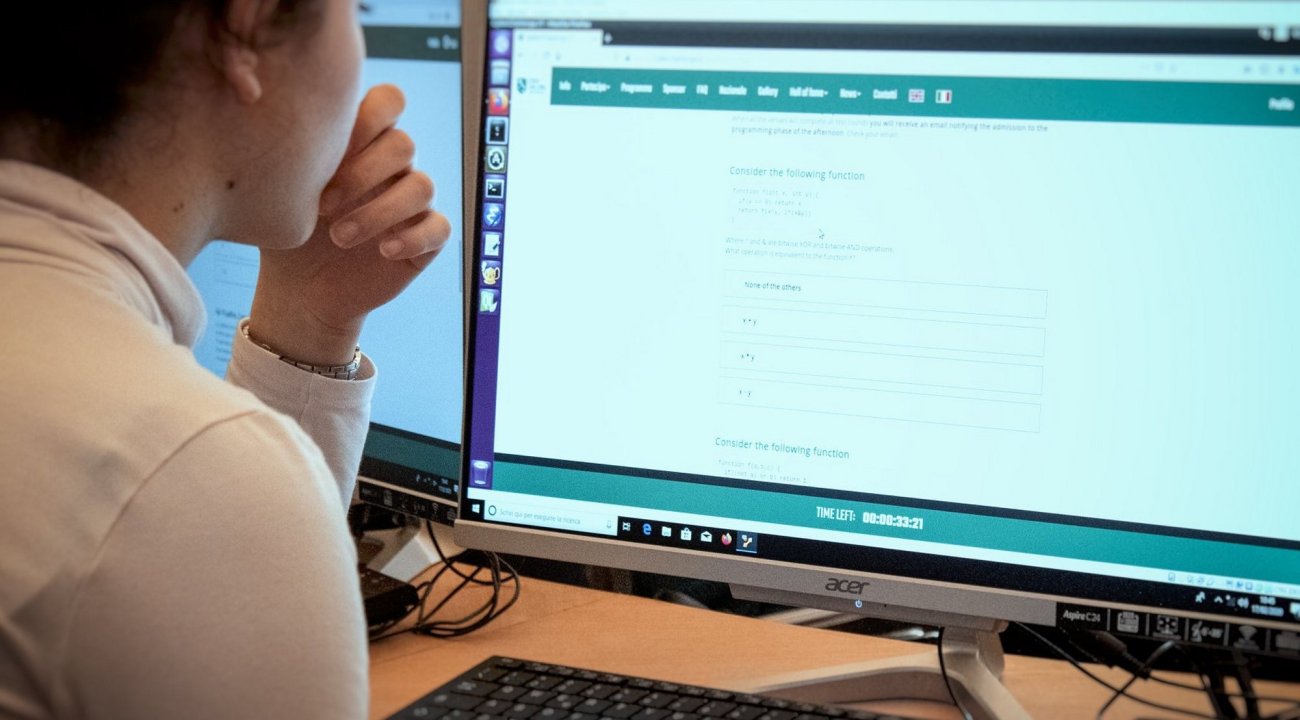
03 Jun CyberChallengeIT: Lessons from ethical hackers ended
In full respect of the established schedule, last week the last lesson of CyberChallenge.IT was held: the Italian training program for young IT security talents, organized by Cybersecurity National Laboratory – CINI (Consorzio Interuniversitario Nazionale per l’Informatica). Not even the unexpected global pandemic has interrupted the initiative that, now in its fourth edition, every year aims to accompany girls and boys between 16 and 23 years old along a path of training and development of specialized skills related to the world of cybersecurity.
Thanks to the rapid preparation of all teaching materials, made accessible remotely, and the reorganization of the portal cyberchallenge.it, which has allowed to host both video lectures and training materials for training, the 560 students have thus continued the lessons even remotely, without taking time to prepare for the local competitions of up to June 8.
On that date, individual competitions will be held at each of the 28 venues that participated in the project (26 universities, the Tuscan Cybersecurity Competence Centre and the Training Command and Application School of the Turin Army), during which the students will have to face numerous challenges inspired by the various aspects of computer security. These will range from software to hardware, including encryption, network and web security and access control.
The best of the ethical hackers who will emerge during the competitions will be invited to compete in a national team competition and may subsequently be invited to join TeamItaly, the National Cyberdefender Team, which participates annually in the European Cybersecurity Challenge (Ecsc) and which in the last edition, last October in Bucharest, won the podium deserving second place.
But the strategy of the National Cybersecurity Laboratory, during the Covid-19 epidemic, went further, with the creation of OpenCyberChallenge.IT: a completely new path and aimed at students who, having taken the admission test to CyberChallenge.IT, were not among the top twenty of their seats. If there are 560 young people selected for admission to the school of ethical hackers (twenty for each location), another 1,300 were offered the opportunity – always free of charge – both to access the lessons and preparatory teaching materials and to compare themselves with some of the tests of the official path. The initiative has so far seen the participation of over 430 girls and boys.
The talent and competence of the young national experts in computer security are widely shared and recognized also at a national level: the project, which is part of the Operational Address no. 3 of the “National Plan for Cybernetic Protection and Information Security”, guided by the Information System for the Security of the Republic – Department of Information for Security (Dis) of the Presidency of the Council of Ministers, has in fact had the patronage of the same Dis and the Ministry of Defence.
“As soon as we understood the gravity of the national and international situation, we took action to allow the regular development of the CyberChallenge training. IT, albeit in ‘smart working’ mode,” commented Simone Soderi, national coordinator of the project: “This was possible thanks to a great teamwork that involved on the one hand the National Cybersecurity Laboratory, which took care of the preparation of all the educational material, and on the other hand the great commitment, on a completely voluntary basis, of the teachers of the 28 offices involved who, with their enthusiasm and dedication, have made it possible to complete the training course, ensuring for all 12 weeks the provision of teaching in remote. Finally, a special thanks goes to the sponsor companies that have supported the project also through numerous technical and specialized interventions for the students of different locations”.
The list of the 28 institutes that have joined the project is available on the official website of CyberChallenge.IT, at the dedicated page. For contacts with the participating institutes or for any video footage of the competitions on February 17th, you can contact the press offices of each institute or write to [email protected].

